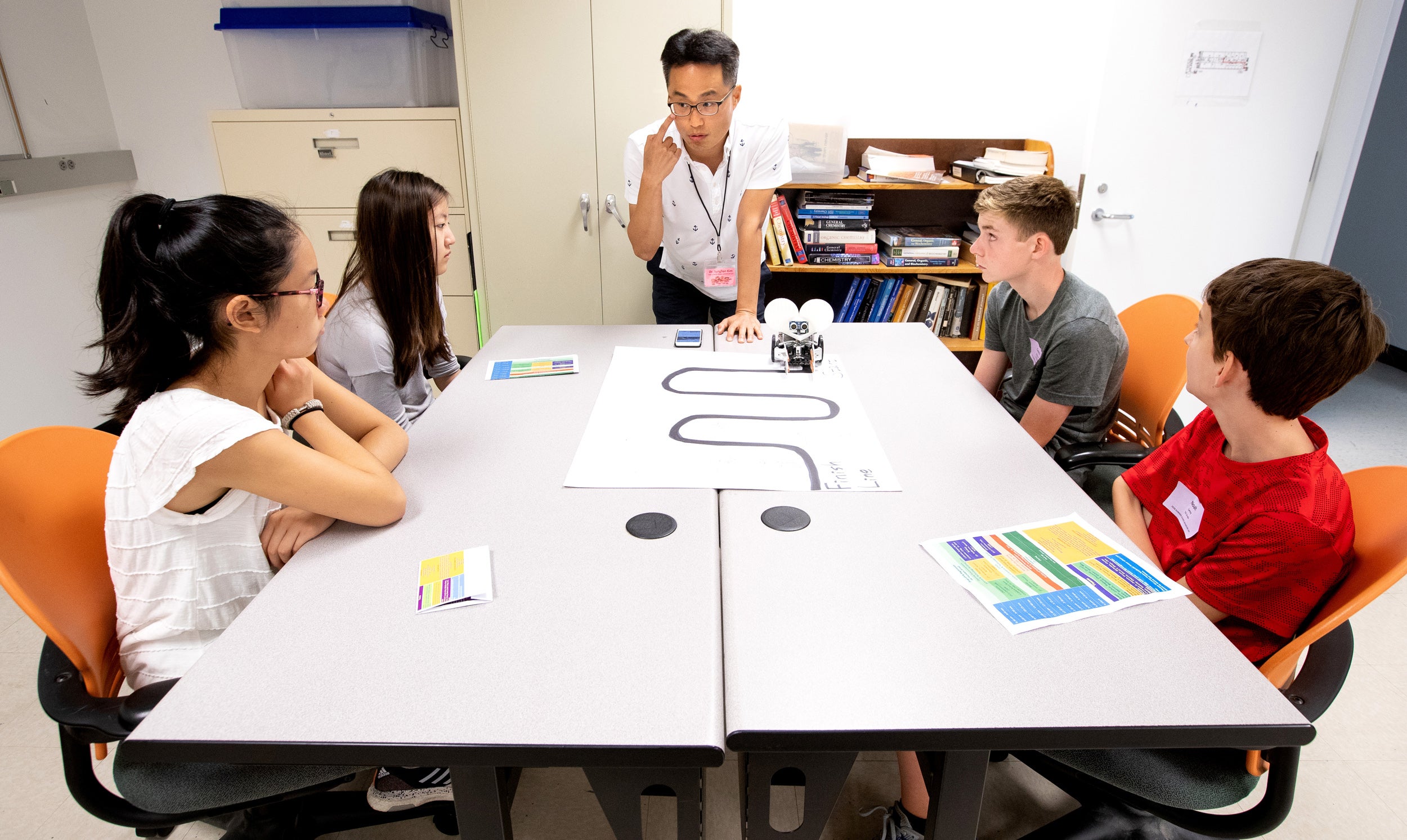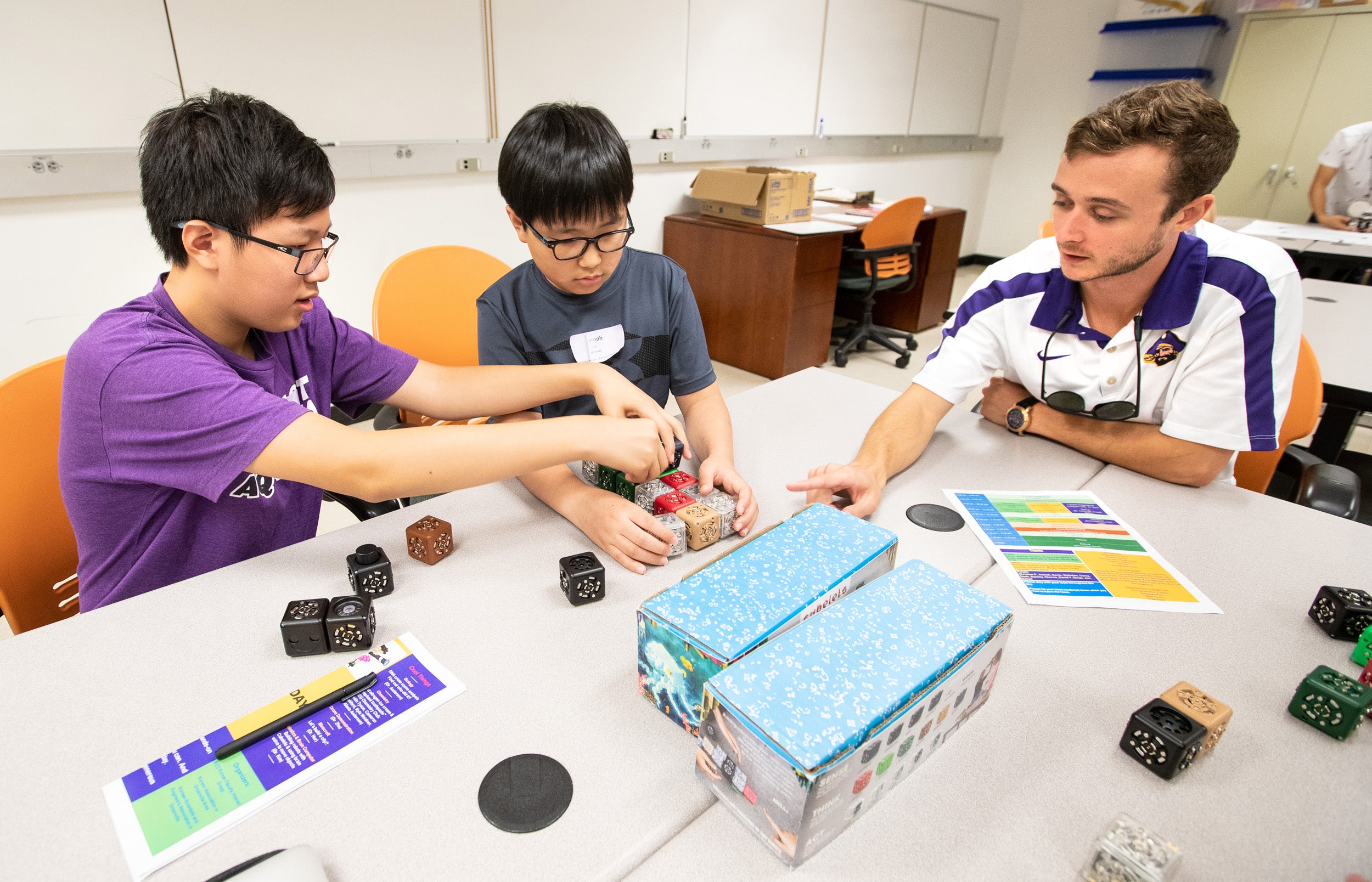Science Adventure Day gives children a head start
Area students got a head start on the school year at ECU’s Summer Science Adventure Day, where they learned some of the practical applications of science while building robots, examining DNA and making ice cream.
Thirty-five children in grades 2-8 participated in the inaugural event on Aug. 15, which featured five hands-on sessions.

Dr. Sunghan Kim explains how a robot works during the Summer Science Adventure Day at ECU on Aug. 15. (Photos by Rhett Butler)
The event was organized by the ECU Korean Faculty Interest Group, the Korean Association in the Greenville Area and the Korean-American Scientists and Engineers Association of Greenville.
One of the goals for the day was to offer children an opportunity to see the real-life applications for some of the lessons they learn in school. This year, the focus was on STEM fields, which included learning more about biology by looking at DNA in a mock crime scene analysis, exploring engineering and technology by building robots and learning about drones, and developing an understanding about the chemistry behind liquid nitrogen ice cream.
Organizers of the event hope to offer similar programs in the future, with an eye toward focusing on additional subjects.

Engineering graduate student Austin White works with participants during the Summer Science Adventure Day.
“We envision that this event can be continued in the coming years, potentially with broader focuses than just basic science or STEM to give children more opportunities to experience application of different studies and application of knowledge they have obtained from their regular academic curriculum,” said Dr. Young Kim, assistant professor in the College of Allied Health Sciences’ Department of Occupational Therapy, who helped to organize the event.
While open to all children, the event was aimed at giving children from minority communities a chance to interact with others who share similar backgrounds. Participants this year included children with Asian, African-American and Hispanic heritage, as well as children from non-minority groups.
“I believe that, through this event, children who are a minority in the Greenville community may feel more inclusion by interacting with children who may have similar cultural background in the context of hands-on, interactive topics,” Kim said. “This type of event is also beneficial for children who are not a minority because it is a great opportunity for them to experience the diversity in the community by interacting with children with diverse cultural backgrounds, as well as with faculty and instructors who have different cultural backgrounds.”
-Natalie Sayewich, University Communications